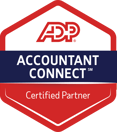Florida's Sales and Use Tax
What you Need to Know
Jay Mims
7/16/20243 min read
In Florida, most businesses that sell tangible personal property or provide certain services are required to collect and remit sales tax. Florida’s state sales tax rate of 6% and in addition to sales tax most counties charge a surtax. Here in Volusia county the surtax is .5% bringing the total sales tax to 6.5% The following types of businesses generally have to pay sales tax:
Retailers: Businesses selling tangible personal property (e.g., clothing, electronics, furniture) must collect sales tax from their customers.
Service Providers: Some services are taxable in Florida, such as non-residential cleaning services, commercial pest control, and security services. However, many professional services (e.g., legal, medical, accounting) are exempt.
Online Sellers: Businesses that sell goods online to Florida residents must collect sales tax if they have a physical presence in the state or meet the economic nexus threshold (i.e., $100,000 in sales or 200 transactions in the state annually).
Restaurants and Food Services: Sales of prepared food and beverages are taxable.
Hotel and Lodging Providers: Rentals of hotel rooms, motels, and other short-term lodging are subject to sales tax.
Rental and Leasing Businesses: Rentals and leases of tangible personal property (e.g., equipment, vehicles) are subject to sales tax.
Handyman, Contractors and Construction Companies: Generally, these businesses do not collect sales tax from their customers on the labor portion of their services. However, they may need to collect and remit sales tax on the sale of tangible personal property, such as construction materials, if they sell these items directly to consumers.
Here are some key points for Handyman and Contractors regarding sales tax in Florida:
Purchasing Materials: When contractors purchase materials and supplies for use in construction, they generally pay sales tax to their suppliers at the time of purchase.
Taxable Transactions: If a contractor sells construction materials or supplies directly to a customer without installation, the contractor must collect sales tax on the sale of those materials.
Resale Certificates: Contractors who purchase materials for resale (without installation) must provide a Florida Annual Resale Certificate for Sales Tax to their suppliers to buy the materials tax-free. They must then collect sales tax when reselling those materials to the end customer.
Repair and Maintenance Services: Contractors who perform repair and maintenance services may need to collect sales tax on the parts and materials used in those services. Labor charges for repairs and maintenance are generally taxable if they involve the sale of tangible personal property.
Installation Services: Charges for installation labor are not subject to sales tax if the installation labor is separately stated from the materials on the invoice. However, if the materials and installation are bundled into one charge, the entire amount may be subject to sales tax.
Real Property Contracts: When a contractor performs work that involves the improvement of real property (e.g., building a house, constructing a building), they are considered the final consumer of the materials used in the construction. As such, they pay sales tax on the materials when purchased, but do not collect sales tax from the property owner on the materials or labor.
Filing Frequency
Annual Sales Tax Collections and Return and Payment Filing Requirement:
More than $1,000 - Monthly
$501 - $1,000 - Quarterly
$101 - $500 - Semiannual
$100 or less - Annual
Due dates
Sales and use tax returns and payments are due on the 1st and late after the 20th day of the month following each reporting period. For example, if you make a sale in January and your returns and payments are due monthly, your return and payment for the January reporting period are due February 1 and late after February 20; however, if your returns and payments are due quarterly, your return and payment for the reporting period January – March are due April 1 and late after April 20. A return must be filed for each reporting period, even if no tax is due.
It’s important for businesses to register with the Florida Department of Revenue to collect and remit sales tax. There are also specific exemptions and rules that may apply to different types of businesses, so consulting with a tax professional or the Florida Department of Revenue is advisable for specific guidance.

Credentials
CPA # 44657
QuickBooks Pro Advisor
Schedule a meeting
386-846-9140
jay@integralcpa.com
128 Orange Ave
Daytona Beach, FL 32114
© 2025. All rights reserved.






